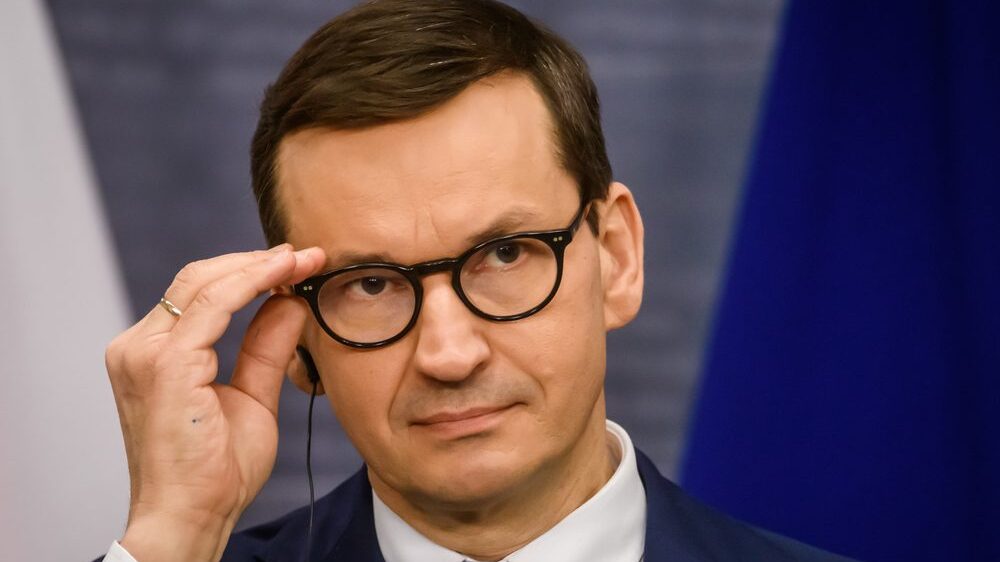Poland will not consent to any form of the EU’s refugee redistribution scheme, also known as the migrant quota system, in the bloc’s upcoming new Migration Pact, Polish Home Affairs Minister Mariusz Kamiński confirmed. PM Mateusz Morawiecki said Poland is not interested in paying instead of taking refugees either, Politico reported on Wednesday, May 31st.
“There is no and there will be no consent to the forced relocation of migrants to Poland,” Kamiński tweeted on Friday, May 26th.
Nie ma i nie będzie zgody na przymusową relokację migrantów do Polski.
— Mariusz Kamiński (@Kaminski_M_) May 25, 2023
The remarks came as the EU’s flagship migration package is getting ready for Council approval during the next meeting of the bloc’s home affairs ministers on June 8th, after which it could be finalized during the next summit between heads of state at the end of the month.
Poland is not the only one to oppose the current version of the proposal, as a number of countries, including the Czech Republic and Hungary, are expected to put up a strong resistance against certain measures of the migration pact, with migrant quotas being the most problematic of them all. The quotas are meant to relieve the frontline countries that have to bear most of the migratory pressure by mandating the relocation of a certain number of asylum seekers to each member state.
“The forced relocation of illegal immigrants … was probably the stupidest ideas ever to come out of Brussels,” Polish MEP Kosma Złotowski (a co-chair of the ECR’s migration policy group, as well as a member of the recently formed cross-party policy group) told The European Conservative. As the MEP explained,
On the one hand, it forced the Member States to create a de facto system of incentives for illegal border crossings of the European Union, while on the other, against the wishes of those who were already in the EU illegally, it forced them to stay in countries they did not want to be in at all. From the perspective of all parties, this is an absurd and oppressive solution, accompanied by horrendous penalties, for example, for the fact that an illegal immigrant has chosen to leave the country where he or she was forcibly resettled.
Knowing just how explosive an issue the relocation scheme is (and has been for the past eight years), the Commission and the Council’s Swedish Presidency have been trying to sweet-talk the reluctant countries into accepting its new version by insisting that it’s not a compulsory mechanism anymore, but more of a “mandatory solidarity” instead, allowing countries to choose not to accept migrants in exchange of financial contributions or “alternative solidarity measures,” such as supplying technical equipment or personnel.
However, a shiny, new wrapping is not enough to sell migrant quotas to some, including Poland, whose prime minister took a firm stance against the idea of having to choose between migrants and money. According to PM Morawiecki, EU countries that don’t accept refugees will have to pay €22,000 for each migrant they turn around to compensate other countries for housing costs.
Now, even though the draft legislation mentions no exact figure, the price tag mentioned by the Polish PM would likely end up being the real one, as it’s currently being thrown around by EU officials in closed-door meetings, according to diplomats who spoke to Politico.
Furthermore, the draft legislation also states that the “mandatory responsibility offsets” will only be triggered if relocation pledges fall short of 60% of the total needs. While this is meant to be a reassurance to Poland and others, previous statistics suggest that voluntary mechanisms usually get exhausted before they could even begin. As Swedish MEP Charlie Weimers (ECR) pointed out last month, solidarity pledges are rare and often not fulfilled, with only 500 migrants relocated out of the 8,000 that countries vowed to take in last year.
According to Złotowski, instead of trying to sugarcoat it, the EU should have long learned to accept that some member states don’t want to partake in the redistribution in any shape or form. Poland, for one, will never agree to return this mechanism, he said, and “will vigorously fight this idea in all possible forums”—especially now, when it’s trying to help “real war refugees” from Ukraine.
The MEP told us:
The attempt to force this mechanism previously ended in a total embarrassment for the European Commission … Revisiting this debate shows the European Commission’s complete unrealism and inability to learn from its own mistakes.
The European Union needs a migration policy that enforces the existing rules for crossing external borders, not encourages their violation. For incomprehensible reasons, the approach the Commission is proposing is not to control or stop illegal immigration into Europe but to escalate it to a level that is impossible to manage effectively.
If France, Germany, or Sweden want to keep making the same mistakes in migration policy over and over again, let them do these social experiments on their own citizens, with their own money, and leave Poland out of it.






